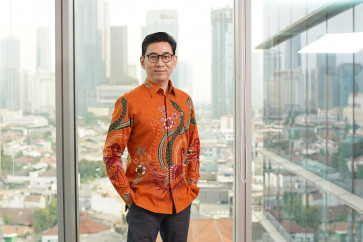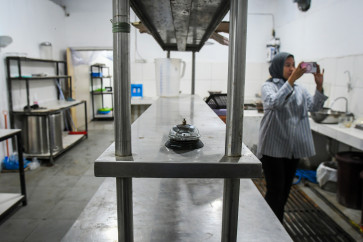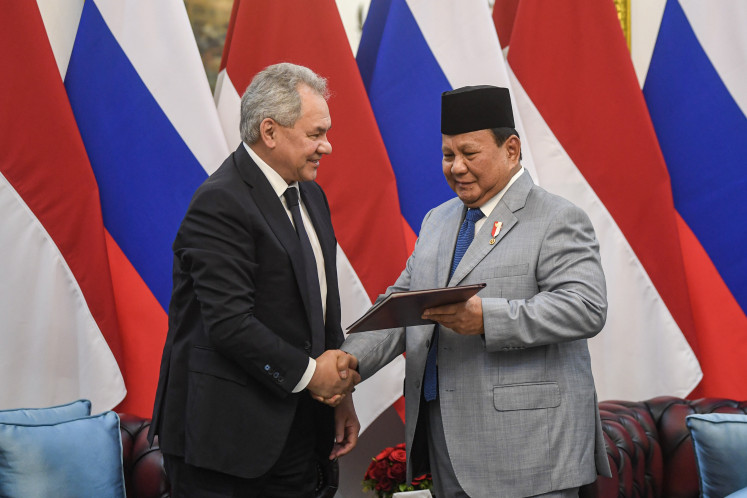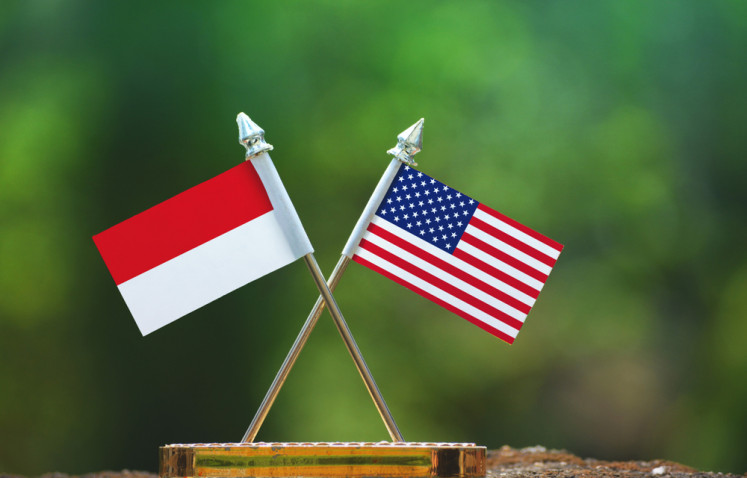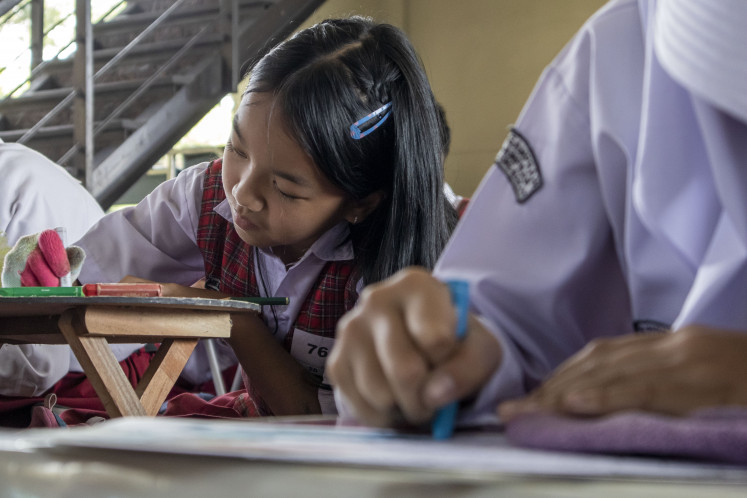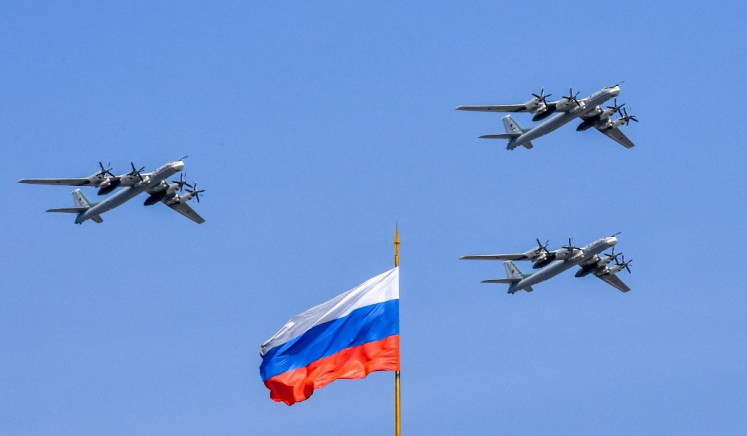ASEAN’s focus on climate matters more than on big-power rivalry
ASEAN people realize that the only way to matter in the domain of international affairs and have a say at the table where major decisions are taken is through unity and stronger cooperation.
Change text size
Gift Premium Articles
to Anyone
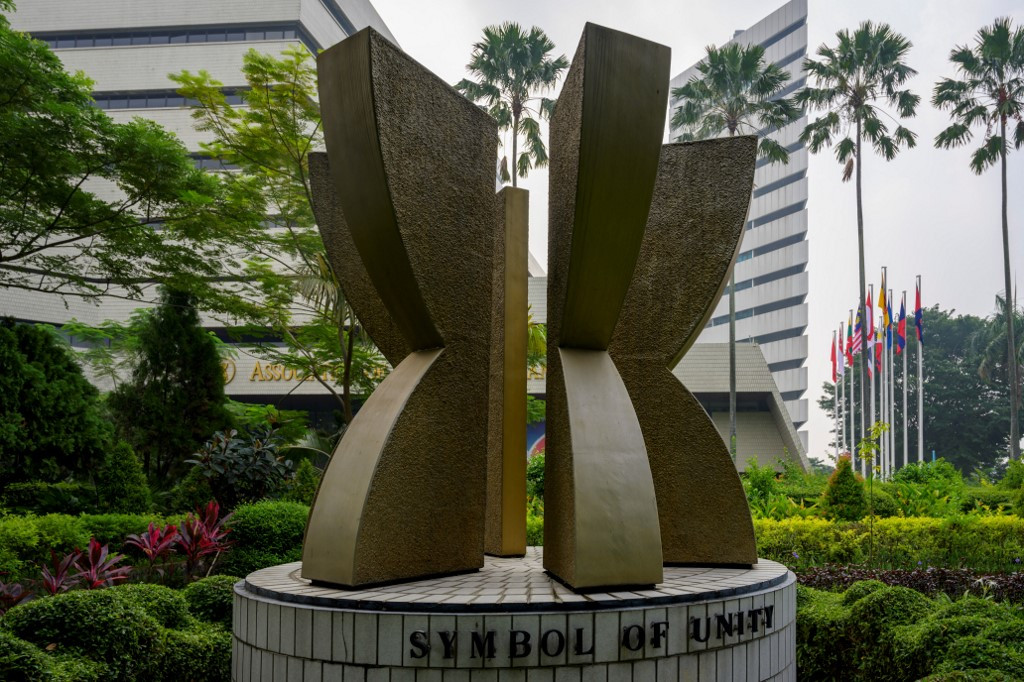 A statue is seen in the courtyard of the Association of Southeast Asian Nations (ASEAN) secretariat building in Jakarta on April 20, 2021. (AFP/Bay Ismoyo)
A statue is seen in the courtyard of the Association of Southeast Asian Nations (ASEAN) secretariat building in Jakarta on April 20, 2021. (AFP/Bay Ismoyo)
T
he findings of the recently released “State of Southeast Asia 2025 Survey Report” by the ISEAS-Yusof Ishak Institute should worry the political establishment in China as it depicts people in the region having an unfavorable view of China, while, quite surprisingly, showing more confidence in the United States.
To be fair, perceptions might have changed by now if the heavy tariff imposed on the region by the administration of US President Donald Trump were to be taken into account.
Yet despite a highly probable negative impact of the “Trump effect” on the way Southeast Asians think of the US, China is nevertheless not loved but rather feared.
The tactics used to control and react to what Beijing perceives as provocations by the US over Taiwan are not working. Instead, they are backfiring.
It is reasonable, however, to wonder if the “Trump effect” could lead to what was until recently an unexpected outcome, having China, South Korea and Japan cooperate among themselves about trade and economy.
Any strengthening of the relationships among Tokyo, Seoul and Beijing would enable some positive ripple effects benefiting hundreds of millions of people in Asia and the Pacific region. Stronger economic ties among the three nations would matter a lot, but Southeast Asia would not be able to claim a major stake in the outcomes.
The nations of the region must come together in a common front to do that. Moreover, China will remain what it is, the biggest economic and geopolitical power in the Asia-Pacific and a formidable rival to the US for global primacy.
If you are the biggest and strongest in the classroom, you can be either feared or loved. This is the choice that Beijing should make.
The Belt and Road Initiative is not enough. No matter how transformative it is, people generally dislike aggressive behavior or any of show of force.
This is what is happening with the US these days, with millions all over the world starting to hate Trump’s attitudes and behaviors.
As we know from the “State of Southeast Asia 2025 Survey Report”, the possibility of heightened tensions and any belligerent approach to geopolitical challenges posed by the region will be seen negatively.
The survey explains that “40.7 percent of the respondents feel that the US’ engagement with Southeast Asia under President Trump will either increase or increase significantly. Among these, more than a third (38.7 percent) attribute it to Trump’s tough stance on China to maintain a balance of power”.
I do not believe that people of the region have an intrinsically negative view of China, considering also the unmatched and unparalleled historical links and connections that exist between them.
At the end of the day, it seems that this is China’s game to lose. Yet eventually, the citizens of Southeast Asia must focus on what they can control and where they have direct influence.
What should matter most to the citizens of Southeast Asian, at least for now, is neither the positioning of Beijing and Washington over Taiwan nor the skirmishes between the two big powers. They realize that the only way to matter in the domain of international affairs and have a say at the table where major decisions are taken is through unity and stronger cooperation.
That is why, according to ISEAS-Yusof Ishak Institute’s report, “40.2 percent of the respondents prefer to accelerate ASEAN regional integration among member states in response to rising protectionism and nationalism”.
In my previous column, I expressed my disappointment with Malaysian Prime Minister Anwar Ibrahim, who is the current ASEAN chairman, for the way he is dealing with this community of nations.
Many were expecting him to come up with some bold ideas. Instead, he seems okay with having the bloc outsource the job of envisioning ASEAN’s future to a group of experts and officials with zero power of messaging.
At the very least, Anwar should ensure that ASEAN gets an official status as a “community of nations” in mechanisms like the Group of 20 (G20) and be a permanent invitee at Group of Seven (G7) meetings and even at BRICS.
But if the survey attracted a lot of attention to the way people look at China, we should not forget that the main finding was the fact that the people of the region are concerned about climate change. This is a realm where this community of nations can move in unison with common strategic actions and coordinated policies at the level of the individual member states.
What is the real political value of documents like the ASEAN Climate Change Strategic Action Plan (ACCSAP) 2025-2030 or of the ASEAN State of Climate Change Report? As informative as they are, we need political decisions at the highest levels of policy-making, and this is at the level of heads of state.
Why not have a special ASEAN summit dedicated solely to climate action? The European Union often convenes unscheduled meetings with its heads of state if urgent matters arise. Anwar should dare to organize such a gathering.
What about a global initiative like a Southeast Asian version of the Petersberg Climate Dialogue? Substance is paramount, but symbolism is nevertheless important.
ASEAN could engage the secretariat of the United Nations Framework Convention on Climate Change and come up with a joint initiative on mitigation or adaptation or climate finance.
What about having Anwar and ASEAN Secretary-General Kao Kim Hourn jointly attending the upcoming COP30 in Belem, Brazil?
I doubt ASEAN will be able to up the game and start significant and bold internal reforms. However there are no alternatives, unless some of its member nations decide to step up.
Until then, a stronger ASEAN is the best hope for the citizens of Southeast Asia. This community of nations must start tackling the threat of climate change on its own. This would surely end up being noticed by the big powers.
Climate is among the most pressing issues ASEAN can deal with, but, as we know, there are other geopolitical matters that ASEAN must contend with.
To exercise influence at geopolitical levels, ASEAN needs to be more respected. This would happen only when ASEAN, as a “collectivity” of nations, takes the initiative and goes bold.
***
The author is a freelance writer who focuses on regional integration, human rights and geopolitics in the Asia-Pacific.


